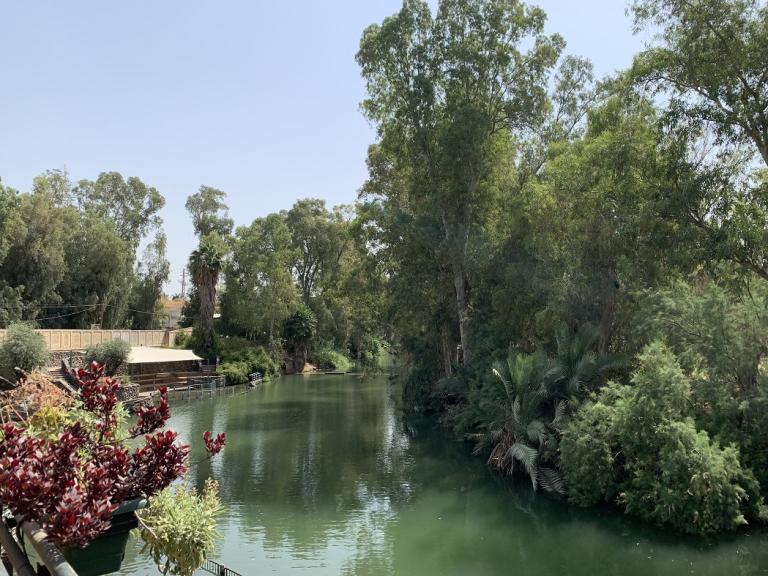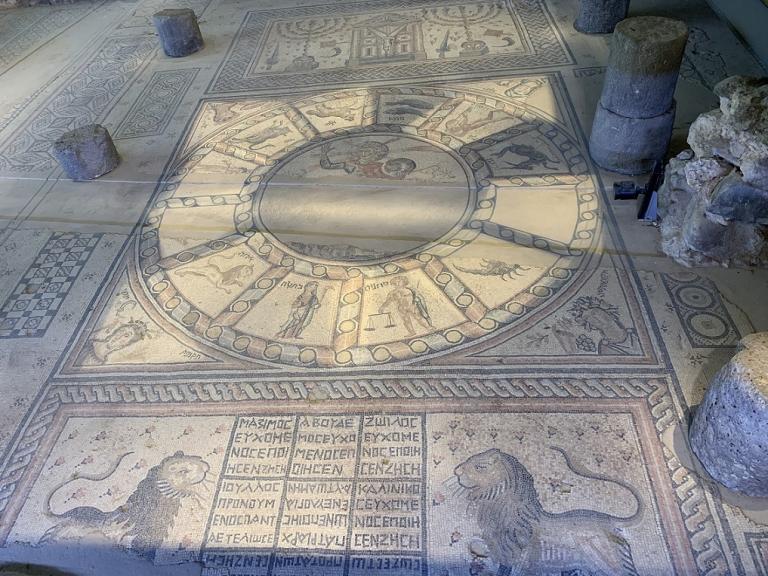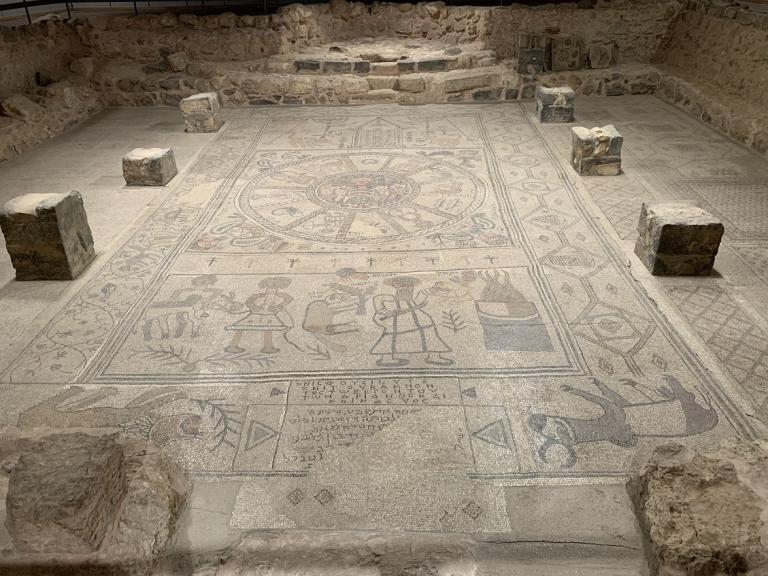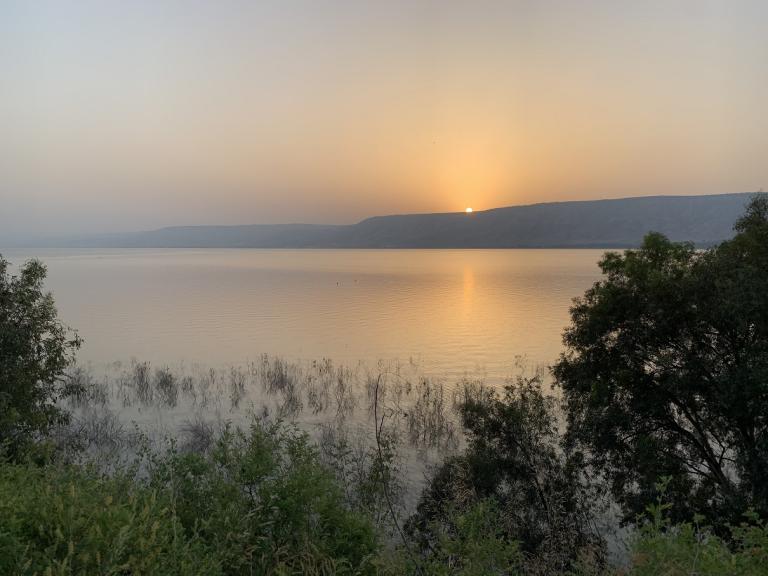Walking in the Footsteps of John the Baptist, Part 2
James McGrath has recently traveled to Israel to walk in the footsteps of John the Baptist. I thought it might be of interest that we journey with James as well to discover the early days of Jesus' ministry through his cousin John. Enjoy.
R.E. Slater
August 25, 2022
In the Footsteps of John the Baptist Part 2:
Yardenit, Tiberias, and Bet Alfa
by James F. McGrath
July 11, 2022
I shared photos on Facebook during my brief visit to Tiberias on the shore of Lake Kinneret or Lake Tiberias (named by the Gospel of Mark the “Sea of Galilee” and now more commonly known by that name). When I did so I wrote that Herod Antipas built cities, buildings, monuments of various sorts. John the Baptist built a ritual with water. Today the ruins of Herod’s capital in Tiberias don’t have much left of them and no one goes out of their way to see them (apart from a handful of people like me who are interested in ancient history). People travel from all over the world, on the other hand, to visit places that have even the vaguest of association with John. There is surely something noteworthy in that.
When I referred to places that have only a vague association with John I was thinking of a great many of the sites I visited in the Holy Land which claim to be connected with John. Yardenit, however, was first and foremost in my mind. It is promoted as “the baptismal site on the Sea of Galilee” and it has everything that the more traditional site at Qasr al-Yahud has and more, including a much more elaborate gift shop (which one must pass through to get to the baptismal area). While the traditional site (which I also visited on this trip) has been a place of pilgrimage since ancient times (although whether it was precisely here that the Madaba map and other ancient sources were pointing to is another matter). Yardenit? It was created very recently in order to give Christian pilgrims a place to go when Qasr al-Yahud was closed due to the conflicts between Israel and Jordan. Although not of historical interest in that sense, it is perhaps even more fascinating as a result to consider why it is that pilgrims come here and find the experience meaningful.

Returning to Tiberias, or rather its vicinity, I also stopped at Hamat Tiberias. It is the remnants of a city that was once separate from Tiberias but is now incorporated within the limits of the modern city. It had a hot spring and a synagogue with mosaics of a sort very common in ancient times, featuring the zodiac whose twelve signs were associated with the 12 tribes of Israel.

A few days later, as I traveled south along the Jordan River valley towards the place I would stay next, I visited the synagogue at Bet Alfa which has a similar but much better preserved zodiac. These were clearly not at all unusual in the centuries after the time of John and Jesus. These interest me not only for general reasons of understanding ancient Judaism. In Mandaean texts there is also an identification of the Jewish God with Shemesh, the Sun. The seven (planets) and the twelve (constellations of stars) are malevolent forces which the Gnostic prepares through baptism to escape from when they die, and whose influence they resist in the present. The imagery in synagogues and Mandaean literature are part of a conversation about how to view the creator deity and the physical creation.

Although in no way associated with John the Baptist, I also want to mention Bet Yerah, a site near the hotel where I stayed. I found it by accident when walking along a path that runs beside Lake Kinneret. There are ruins there which are almost 5,000 years old. Anything of comparable age anywhere else in the world would be developed as a site worth visiting. In Israel it is simply par for the course, just like finding fragments of first-century pottery.
On my way southwards I also stopped at Belvoir Castle (Jordan Star National Park), mostly to enjoy the view it provides of the Jordan River valley. There is an impressive crusader fortification up a very winding road. (Winding roads were a recurring theme on the trip.) It does have a connection with John the Baptist, albeit the most distant perhaps of any of the connections explored on this trip. Belvoir Castle was built by Knights of the Hospitaller Order of St. John of Jerusalem. This famous military order associated with the crusades took John the Baptist for their name and patron.
More photos from my trip will follow. In the meantime, here is one last one. I often got up to watch the sun rise over Lake Kinneret/the Sea of Galilee…


No comments:
Post a Comment